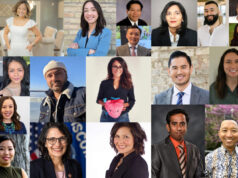Many years ago, a dear friend of mine was frantically looking for a private school where she could send her adolescent daughter who I will call “Imani.” The schools in her area were under a court-ordered desegregation mandate and their track record with black children was hideous. Almost 7 out of 10 black children dropped out of those schools.
So, she began the quest of looking for a private school alternative. One of the schools she looked at was an exclusive girls’ school with a lovely expansive campus in an upscale community. The custom of the school for prospective students was to have those students come for a “shadow day” where they would be paired with a freshman student and attend classes to get an idea of what life at the school was like. At the end of her shadow day, my friend came by to pick up her daughter. Imani got into the car and slumped down in the passenger seat.
“How was it?” my friend asked with enthusiasm.
“Do you want to go there?”
“No mom,” Imani replied. “They already got their black girl!”
Imani’s comment that they “already got their black girl,” referred to the fact that the school had ONE other black girl and throughout the day, Imani was constantly being measured by the black girl who was already enrolled in the school. At every turn, Imani heard, “Tiffany” doesn’t do that.” “Tiffany doesn’t wear her hair in braids like that.” “Tiffany plays field hockey, do you?” “Tiffany went to such-and-such middle school, did you?” Any deviation from Tiffany’s choices and ways of being were seen as suspect. The point of this illustration is that even as we move into adulthood, Black women who are able to “conquer” white spaces are regularly being measured and the measuring rod is often that of another “more acceptable” black woman.
Over the past several years I have written letters and responded to reference calls for highly capable black women academics. In each case, the subtext of the conversation I had with the search chair or dean was, “We already have our black girl and how is this one going to fit with the one we have?” It also implies that there can only be ONE black girl in an organization and more than one means they will regularly be pitted against each other. Heaven forbid, they should work in coalition and try to accomplish a common purpose.
The primary perpetrators of this “divide and conquer” strategy are white women. They often determine they will be friends with ONE of the black women and so they often look for faults in the other. Their description of the “other” black woman is that she is “difficult,” “not a team player,” or “angry.” In other words, she is not like “our black girl.” I was subject to that behavior in one of my early academic jobs. White women colleagues would come to my office to “tell me something” about the one other black woman in our department. What they did not understand was I owed my job to that other black woman. She sought me out. She lobbied for me to get the position. We had each other’s back. There was no way I would team with those people against my sister friend.
When my own career began to take off and I got a fair amount of notice in the scholarly community, I began to notice that when white people disagreed with me they would reference another up and coming black woman scholar. Every talk I gave included someone (typically a white woman) during the question and answer period saying, “Well, Dr. ‘So-and-So’ says…” as a way to challenge my legitimacy. Interesting, when my sister scholar was giving lectures she received the same treatment where I was used as the person to challenge her. Of course, these challengers did not realize that Dr. ‘So-and-So’ and I were professional and personal friends. We had spent many hours talking over the issues we studied. I can remember my then-3-year-old daughter comfortably perched on her lap during a session at another Sister-Scholar’s home. We had a good laugh over the fact that one of us was regularly thought to be “their black girl.”
It’s frustrating the way white women attempt to manipulate their black women colleagues. It is no honor for most of us to be accepted by white people. We rarely sit in complete alignment with white women. Our issues tend to remain closer “to the ground.” We care about child support, being paid the same as our white women colleagues, different standards of beauty, availability of suitable partners, access to affordable housing as well as housing discrimination. We want our ideas acknowledged. We are tired of sitting in meetings, offering ideas, being ignored and having some white person offer the VERY SAME idea and be told that it is brilliant! We live in a black girl world that can accommodate a Beyonce AND an India Aire; a Viola Davis AND an Angela Bassett; a Maxine Waters AND a Sheila Jackson. Stop looking for the ONE!
We are not here to make you feel like you’re a “good” white person. We are not here so you can identify at least one black “friend.” We are not here to validate you and acknowledge your white tears. We are not here to be your black girl!










